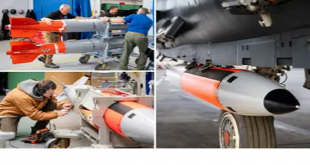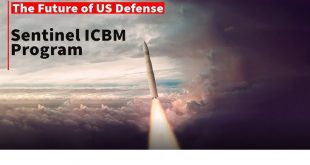In recent days, the member governments of the BRICS+ group have met in the capital of Brazil, Rio de Janeiro. This year, compared to last year’s meeting in Kazan, Russia, no significant progress is expected due to the apparent lack of full commitment by the Brazilian government to the development of an economic pole truly independent of North American and European dominance. Currently, the year-on-year growth figures of the largest world economies show that the economies of China and India are growing by more than 5% while the North American economy is growing by 2% on a downward trend, Japan and the United Kingdom by less than 2% and countries such as France, Italy and Germany by less than 1%.
Russia’s economy is growing more than those of European countries despite facing thousands of illegal coercive measures from the collective West. So, even with the ruthless economic aggression on the part of their governments, the North American and European economies are still in marked decline relative to the BRICS countries. However, although the collective West cannot compete economically with China and other Asian countries, nor militarily with the Russian Federation, it still maintains great structural economic advantages in relation to the majority world thanks to the legacy of centuries of colonial wealth extraction and its control of the international financial system.
.

Family photo at the 17th BRICS Summit at Rio de Janeiro, in Brazil on July 07, 2025. (GODL India)
In 1945, at the end of the Second World War, the US ruling class was able to impose a new world economic structure because its country was the only world power that had not suffered massive destruction of its economy. The European powers that defeated Nazi Germany were highly indebted to the US government, so they had to accept the international financial policies imposed through the World Bank and the International Monetary Fund, controlled by the US elites. Only the Soviet Union and the People’s Republic of China and their allies remained independent of the Western financial system.
This system allowed the US elites to develop very strong neocolonial economic control over the majority world.
Later, with the US war against Vietnam and the consequent abandonment of gold as a guaranteed support to the US dollar, the other countries of the world have had few alternatives other than buying US assets with the dollars they have to accumulate since it is the main international reserve currency. As several economists have explained, since 1971, the majority world in practice has been financing the wars and militarism of the US elites and their allies.
Now, the majority world no longer accepts the limits imposed on its peoples’ human development by the collective West, because they can develop new relations with the huge Eurasian market. In addition, the creditor countries of the US government know that they are unlikely ever to be paid because the US government’s debt has reached unpayable levels. On the other hand, if they have assets in the form of investments in the US economy, the example of the freezing of Iranian, Venezuelan and Russian assets shows that no one can trust the US authorities.
Another decisive reality is that the countries of the majority world reject constant US military aggression, exemplified by last month’s unprovoked aggression against the Islamic Republic of Iran and by US support for the Israeli genocide in Palestine. The background of the convergence of these factors adverse to the dominance of the collective West is that now China, Russia and, to some extent too, India have reached levels of financial, commercial and technological development that are leaving the economies of Western countries behind. The meeting of the BRICS+ countries highlights this reality, although it also shows that Brazil and, to a lesser extent, South Africa have not been able to free themselves from their subordinate relations to the collective West.
A reflection of the relative economic and military weakness of the US government is that it has had to force its European NATO allies to increase their military spending to the elevated figure of 5% of their respective countries’ gross domestic product. Such a measure implies the effective end of the social democratic welfare state in Europe, in line with the aggressive cuts in social spending ratified last week by the US Congress. The cuts in the US and European social welfare system are also reflected in cuts in their budgets dedicated to international cooperation for development.
Economist Michael Roberts reports that by 2026, the US cuts to development aid and those of its allies in the G7 group of rich countries will be 28% less than the amount allocated in 2024. In fact, very few developed countries have ever fulfilled the commitment they made since the 1970s to allocate 0.7% of their Gross National Income to development cooperation. In any case, developed countries always impose conditions of one kind or another on their cooperation. Also relevant in this context of ever greater militarism and the reduction of even the token crumbs of development cooperation is the inherent criminality of the Western political-financial system.
In recent years, the criminal bad faith of the collective West has been evident in the abuse of the US judicial system in favor of US owned vulture funds at the expense of the Argentine people and the theft of assets from the Venezuelan people. This month the US government has taken unjustified punitive measures against three Mexican banks without presenting any evidence, while at the same time intensifying the sadistic genocidal blockade against Cuba. Illegal unilateral coercive measures by the US and allied governments against more than 20 countries of the majority world are still in force. The illegal seizure of Russian and Iranian assets and funds, amounting to hundreds of billions of dollars, continues, among many other examples.
This is the global political, economic and financial context in which the countries of the BRICS+ group and the Shanghai Cooperation Organization are making progress in the design and implementation of alternative mechanisms and structures to the Western financial system. It is likely that China, Russia and their partner countries in the Eurasian region, such as Iran, will move faster in this regard than countries in other regions, such as Brazil and South Africa. Payment systems such as Russia’s SPFS, China’s CIPS and Iran’s SEPAM complement each other and serve as highly viable alternatives to the outdated Western SWIFT financial messaging system.
Russia’s SPFS and Iran’s SEPAM systems were fully integrated last year, which will increase the scope and independence of these systems compared to the Western financial system since 24 countries participate in the SPFS and at least 13 countries participate in SEPAM. In 2023, it was reported that the Asian Clearing Union, which includes India and Pakistan, adopted SEPAM instead of SWIFT for the bilateral business transactions of its nine member countries. On the other hand, China’s CIPS payment system far surpasses the outdated SWIFT system by completing messaging, clearance and settlement functions comprehensively and cheaply in a single process, which reduces each transaction to seconds, but which in SWIFT can take up to two days, at a much higher cost.
However, if one reads this year’s report of the Bank for International Settlements, the so-called “bank of Western bankers”, one looks in vain for any mention of CIPS, SPFS or SEPAM, much less BRICS or the SCO. The economic strategists of the Western central banks very clearly identify the problems in their economies of low productivity, chronic inadequate investment, lack of genuine competition, high energy costs and high transport costs, among others. But they are unable to take into consideration the relationships and systems being developed by the BRICS+ countries which might help them mitigate and correct the problems they identify.
The consensus among the management class of the Western financial system is that the world faces multiple risks in a climate of tremendous uncertainty whose outcomes are highly unpredictable. But, in essence, these central bankers’ remarks about uncertainty are a kind of code to avoid admitting the consequences of demented European militarism, the lack of compliance with climate change goals and destructive US protectionism. They identify what they call “geo-economic fragmentation” without recognizing that they themselves reflect precisely the same irrational prejudices of their political bosses that have caused the ruptures now in process in international relations.
We see this reality developing in Latin America and the Caribbean. While China supports and invests in regional integration, the US elites act through their government to divide the region and prevent Chinese investment. Several economic studies confirm that one result of more than a century of US intervention has been a very low percentage induced from within the region of added value to goods produced. The low proportion of manufactures in the region’s exports decreases the momentum towards integration, because food production and the production of raw materials do not require complex supply chains. In general too, the region’s dependence on the US dollar for cross-border transactions and loans and low levels of investment by US financial centers also hinder deeper regional integration.
The main challenge for the governments of the region is to what extent they will be able to successfully work with China and other partner countries to reduce poverty. In contrast to US economic aggression and intimidation, China offers to improve the connectivity of the region, invest in its logistics capacity and use new technologies to improve productivity and the percentage of added value in their economies. It is noteworthy that the path taken by the Eurasian countries based on solidarity-inspired cooperation, economic complementarity and respect among equals is the same path taken by the ALBA countries. Clearly this approach is the best guarantee for majority world countries to get out of poverty and achieve the economic emancipation of their Peoples. As Comandante Daniel Ortega said last year on the 45th Anniversary of the Triumph of the Sandinista Popular Revolution:
“…there is a New Vision, a New Awareness and, above all, the will and the decision to achieve relations between all the Countries of the Planet, which are relations of respect, which are relations whereby we integrate efforts and resources to fight hunger, poverty and migration. And this is what is happening now across the planet…the Imperialists of the Earth, of course seek to deny that integration between Nations who want to cooperate, Nations that integrate and incorporate, who don’t invade other countries, or bomb other Countries, but join together so as to strengthen relations in the economic field, in the commercial field, in the social field, in the productive field. It is a struggle for Peace! This is the first great rupture, the first great blow that the imperialist tyranny the world has been subjected to has received.”
By: Stephen Sefton
Stephen Sefton, renowned author and political analyst based in northern Nicaragua, is actively involved in community development work focussing on education and health care. He is a Research Associate of the Centre for Research on Globalization (CRG).
 Tehran Institute For International Studies tiis
Tehran Institute For International Studies tiis



